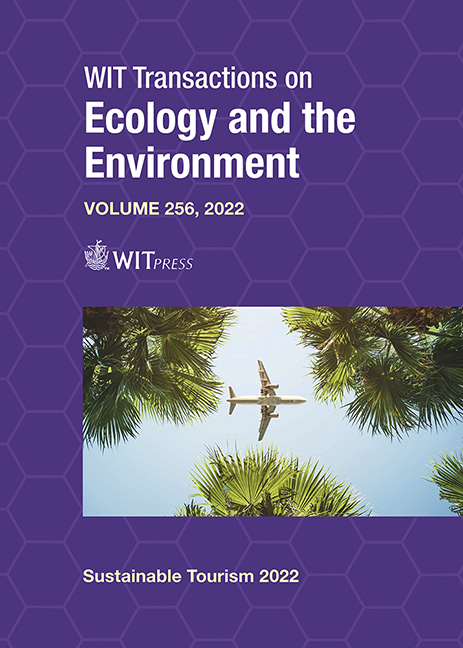IN SEARCH OF THE DESIRED SUSTAINABLE TOURISM: A REVIEW OF LIFE CYCLE ASSESSMENT (LCA) TOURISM STUDIES
Price
Free (open access)
Transaction
Volume
256
Pages
12
Page Range
109 - 120
Published
2022
Paper DOI
10.2495/ST220101
Copyright
Author(s)
CRISTINA CAMPOS HERRERO, JARA LASO, PERE FULLANA-I-PALMER, JAUME ALBERTÍ, MARGALIDA FULLANA, ÁNGEL HERRERO, MARÍA MARGALLO, RUBÉN ALDACO
Abstract
Sustainable tourism should be promoted as a new system for the sustainable management of resources from a socioeconomic and environmental point of view. For this purpose, it is necessary to develop a tool capable of assessing the impacts associated with each of the stages of the sector and to identify which actions are currently being addressed in the tourism sector in order to achieve the desired sustainability in the sector. This timely study aims to describe the current framework of life cycle assessment (LCA) and its application to the tourism sector. To address these questions, the geographical distribution, the temporal evolution of the publications, as well as the most relevant characteristics of the tourism industry articles were evaluated such as the functional unit and system boundaries considered. The study identifies key recommendations on the progression of LCA for this increasingly important sustaining tourism sector. As important results, it stands out that 94% of articles focused on LCA methodology were from the last decade and almost 26% of the articles reviewed cover sustainable tourism term, considering environmental, social and economic aspects. Specifically, LCA is a highly effective tool capable of assessing direct and indirect carbon emissions at all stages of the activity as well as the socioeconomic and environmental impacts generated in the tourism sector. This review showed that the most common environmental indicator in the LCA methodology is the carbon footprint. COVID-19 pandemic is also an object of discussion in the framework of the sustainable tourism together with advocating support for the eco-labelling and digitalisation of the tourism experiences as valuable tools to minimize environmental negativities, to promote mechanisms to access green markets and to frame successful synergies.
Keywords
life cycle assessment, sustainable tourism, eco-labelling, COVID-19, carbon footprint





